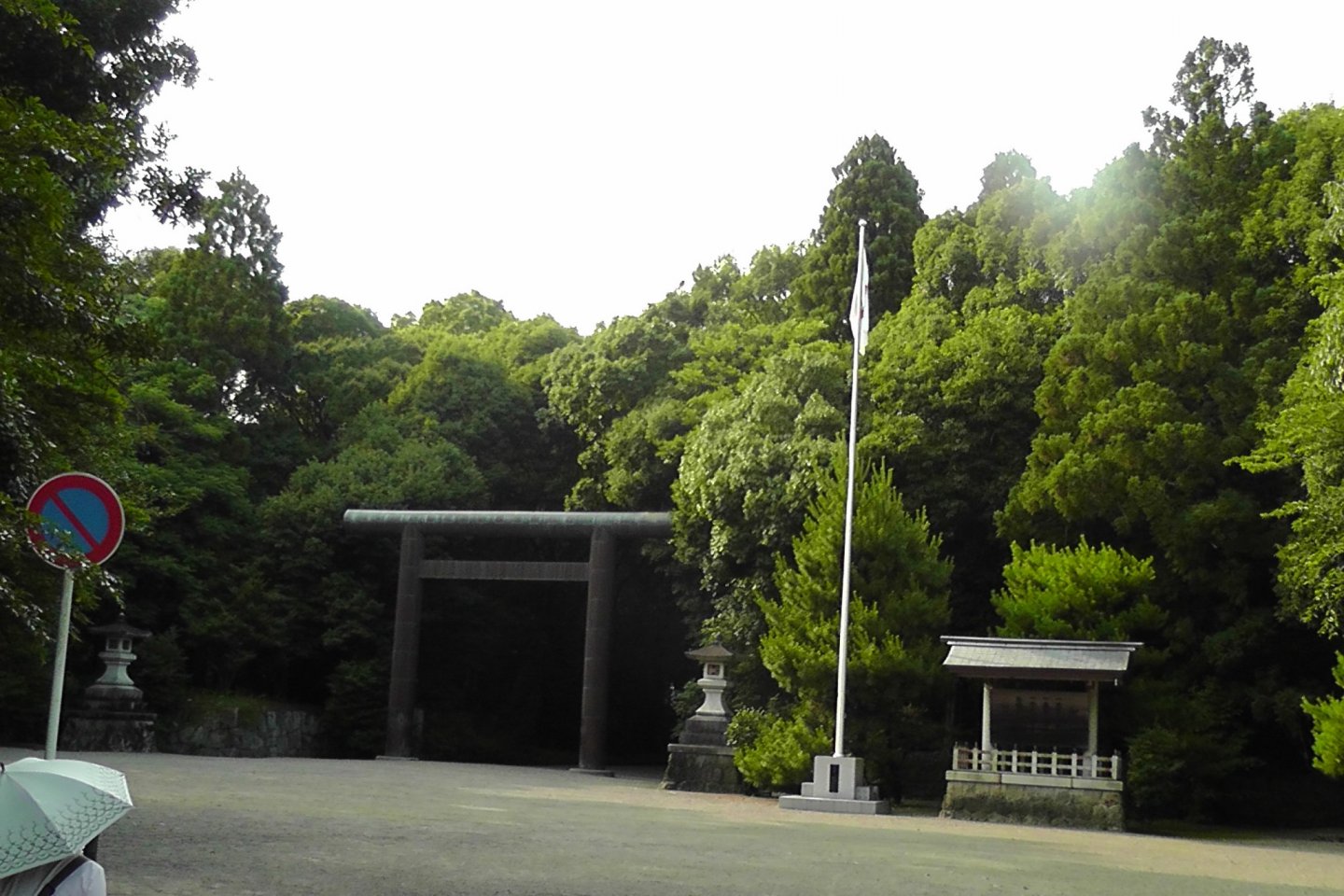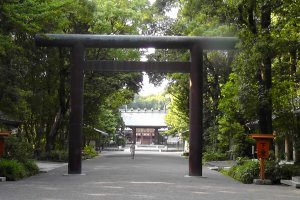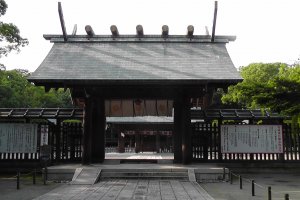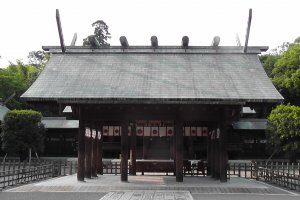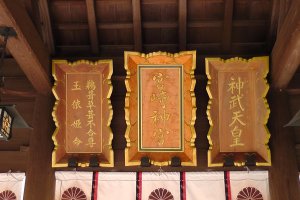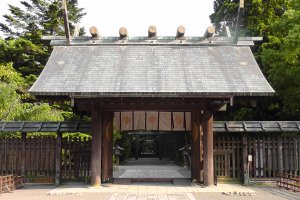The Miyazaki Shrine is the most important shrine of Miyazaki Prefecture and it is dedicated to Emperor Jimmu who, according to the Kojiki (Record of Ancient Matters) and the Nihon Shoki (Chronicles of Japan), was the first emperor of Japan. Because of that, the Miyazaki Shrine is also called “Jimmu-sama”. It is located in the Miyazaki Shrine Forest which is a large green area where other two shrines can be found: the Gosho Inari Shrine and the Gokoku Shrine. So, if you visit the Miyazaki Shrine Forest, you can make the “Sansha Mairi” which is the typical Shintoist pilgrimage consisting of visiting three shrines.
According to Shintoism, Emperor Jimmu is a direct descendant of the Japanese Gods, who were also born in Hyuga, the old name for Miyazaki. All this makes Miyazaki Prefecture the cradle of Japanese mythology and of Japan’s first emperor.
Thousands of people visit the Miyazaki Shrine during the New Year’s holidays which are on January 1st, 2nd and 3rd. After praying for health, happiness and prosperity, people usually have something to eat and drink at the stalls located in front of the shrine main office or at the path leading to the east entrance of the shrine.
Many people have traditional Shintoist wedding ceremonies at the Miyazaki Shrine. So, if you are lucky during your visit, you may find couples getting married wearing very typical Japanese clothes. Also, you may find families with small children of age 3, 5 or 7. This is the “Shichi-Go-San” (seven five three) Celebration where girls at the age of 3 and 7 and boys at the age of 3 and 5 visit the shrine mostly in typical clothes to pray for protection, health and happiness.
One very interesting thing about the Miyazaki Shrine Forest is that you can see very beautiful Japanese roosters walking around with their fellow pigeons and cats. Yes, cats! They all live in harmony in the forest.
The Miyazaki Shrine offers its large empty areas for big events, for example, the “Plant Fair” which is held in the spring and in the fall. They usually are almost one month long. In these fairs you can find flowers, plants and even trees. In the summer there are some festivals organized by the local community where you can have a wonderful time and meet local people. People from Miyazaki are very warm and they will be happy to have visitors enjoying their festivals. It is my personal experience as someone who lives 5 minutes on foot from the Miyazaki Shrine.
Vocabulary
- 宮崎神宮 (Miyazaki Junguu) – The Miyazaki Shrine.
- 神道 (Shintou) – Shintoism.
- 三社参り (Sansha Mairi) – Typical Shintoist Pilgrimage to three different shrines.
- 七五三 (Shichi-Go-San) – literally “Seven-Five-Three”. Rite of passage for girls at the age of 3 and 7 and for boys at the age of 3 and 5.
- 神武天皇 (Jimmu Tennou) – Emperor Jimmu.
- 植木市 (Ueki Ichi) – Plant Fair.
Directions
- From the Miyazaki Station: take the train bound for Sadowara, Nobeoka, Saeki or any other one going north on the Nippou Main Line and get off at the Miyazaki Jingu (Shrine) Station. It will take you about 5 minutes from the Miyazaki Station. From the exit of the Jingu Station, you can see a huge gateway across the road (Route 10). This gateway represents one of the pilgrimage entrances of the Miyazaki Shrine. Cross Route 10 and walk all the way to the shrine west entrance. Turn left and walk about 200 meters along the shrine walls. You will see the Miyazaki Shrine gateway. It will take you less than 15 minutes from the station.
- From the Miyazaki Airport: it will take you about 30 minutes by taxi. Another option is to take the train at the Miyazaki Airport Station and get off at the Miyazaki Jingu Station. According to the train schedules, probably you will have to change trains at the Miyazaki Station.
